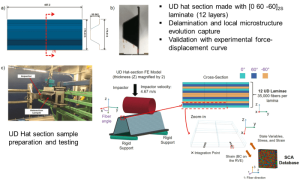
Step into the world where AI reigns supreme in manufacturing industries, driving innovation, cutting costs, and ensuring top-notch quality. Get ready for a rollercoaster ride of insights and examples that showcase the power of AI in revolutionizing the manufacturing landscape.
Overview of AI in Manufacturing Industries
AI plays a crucial role in optimizing manufacturing processes by enabling machines to perform tasks that typically require human intelligence. This technology has revolutionized the manufacturing industry by enhancing efficiency, reducing operational costs, and improving overall productivity.
Role of AI in Optimizing Manufacturing Processes
AI is used in manufacturing to automate repetitive tasks, analyze data in real-time, and make informed decisions to streamline operations. By utilizing AI algorithms, machines can identify patterns, predict outcomes, and adjust processes accordingly. This results in increased efficiency and reduced waste in production lines.
Examples of AI Enhancing Efficiency in Production Lines
- Predictive Maintenance: AI can analyze equipment data to predict when maintenance is required, reducing downtime and increasing machine efficiency.
- Quality Control: AI-powered systems can detect defects in real-time, ensuring that only high-quality products reach the market.
- Inventory Management: AI algorithms optimize inventory levels, reducing excess stock and minimizing storage costs.
Impact of AI on Reducing Operational Costs in Manufacturing
- Energy Efficiency: AI can optimize energy usage in manufacturing facilities, reducing costs and environmental impact.
- Labor Savings: By automating repetitive tasks, AI reduces the need for manual labor, leading to cost savings for manufacturers.
- Process Optimization: AI can identify inefficiencies in manufacturing processes and suggest improvements, resulting in cost reductions and increased profitability.
Applications of AI in Quality Control
AI systems play a crucial role in quality control within manufacturing industries. These technologies are utilized to ensure that products meet the required standards and specifications, ultimately leading to higher customer satisfaction and reduced defects.
Utilization of AI for Quality Assurance
AI systems are employed in quality assurance processes to analyze large datasets and identify patterns that indicate potential defects or deviations from quality standards. By leveraging machine learning algorithms, AI can predict potential quality issues before they occur, allowing manufacturers to take proactive measures to address them.
- AI technologies can analyze data from various sources, such as sensors and cameras, to monitor the production process in real-time and detect anomalies that could affect product quality.
- These systems can also perform predictive maintenance by analyzing equipment performance data to anticipate potential failures and prevent downtime, ultimately improving overall product quality.
Detecting Defects in Products
AI technologies help in detecting defects in products through image recognition, pattern matching, and anomaly detection algorithms. By comparing product images or specifications against predefined quality standards, AI systems can identify deviations and flag them for further inspection or corrective action.
- Machine learning algorithms can analyze images of products to identify visual defects, such as scratches, dents, or discoloration, with a high level of accuracy and consistency.
- AI-based solutions can also analyze production data to detect defects in manufacturing processes, such as variations in temperature, pressure, or material composition, that could impact product quality.
Comparison with Traditional Quality Control Methods
When comparing traditional quality control methods with AI-based solutions, the advantages of AI technologies become apparent. While traditional methods rely on manual inspection and sampling techniques, AI systems offer automation, scalability, and real-time monitoring capabilities that enhance the overall quality control process.
- AI technologies can analyze vast amounts of data quickly and accurately, leading to improved defect detection rates and faster decision-making processes.
- By continuously learning from new data and feedback, AI systems can adapt and improve over time, ensuring ongoing optimization of quality control processes.
AI in Supply Chain Management

AI is revolutionizing supply chain management in manufacturing industries by optimizing processes, improving efficiency, and reducing costs. By leveraging AI technologies, companies can enhance their decision-making capabilities and streamline operations throughout the supply chain.
AI Applications for Demand Forecasting
AI tools can analyze historical data, market trends, and external factors to predict future demand accurately. This enables manufacturers to optimize production schedules, reduce excess inventory, and meet customer needs more effectively.
- AI-powered demand forecasting algorithms can adjust in real-time to changes in customer preferences, market conditions, and unexpected events.
- By accurately forecasting demand, companies can minimize stockouts, reduce lead times, and improve overall customer satisfaction.
- AI can also help identify patterns and trends that human analysts might overlook, leading to more reliable forecasts and better inventory management strategies.
AI Applications for Inventory Management
AI can optimize inventory levels by analyzing historical data, supplier performance, and demand forecasts to determine the right amount of stock to keep on hand. This helps reduce carrying costs, prevent stockouts, and improve overall supply chain efficiency.
- AI algorithms can automatically reorder inventory when stocks reach predetermined levels, minimizing the risk of overstocking or running out of essential items.
- By using predictive analytics, AI can identify slow-moving or obsolete inventory, enabling companies to take proactive measures to liquidate or repurpose these items.
- AI-powered inventory management systems can also recommend optimal storage locations and layout configurations to maximize warehouse space utilization and streamline order fulfillment processes.
Benefits of Integrating AI into Supply Chain Operations
Integrating AI into supply chain operations for industrial goods and services offers numerous benefits, including increased efficiency, cost savings, and improved decision-making capabilities.
- AI can help identify bottlenecks, inefficiencies, and opportunities for improvement in the supply chain, leading to streamlined processes and reduced lead times.
- By automating routine tasks such as order processing, shipment tracking, and inventory management, AI frees up human resources to focus on more strategic activities.
- AI-driven supply chain solutions can enhance visibility, collaboration, and communication across the entire supply chain network, enabling faster response times to changes and disruptions.
AI and Predictive Maintenance

AI plays a crucial role in predictive maintenance within the manufacturing industry, revolutionizing the way machinery and equipment are monitored and serviced. By leveraging AI algorithms, manufacturers can predict maintenance needs before failures occur, optimizing operational efficiency and reducing downtime.
AI Algorithms for Predictive Maintenance
AI algorithms analyze historical data, sensor readings, and other relevant information to identify patterns that signal potential equipment failures. By detecting anomalies and deviations from normal operating conditions, AI can predict when maintenance is required, allowing companies to address issues proactively.
- AI algorithms can predict equipment failures with a high degree of accuracy, helping manufacturers avoid costly breakdowns and emergency repairs.
- Machine learning models can continuously learn and improve over time, enhancing the accuracy of predictions and reducing false alarms.
- Predictive maintenance allows companies to schedule maintenance activities during planned downtime, minimizing disruptions to production processes.
- By implementing AI-driven predictive maintenance systems, manufacturers can extend the lifespan of machinery and equipment, leading to cost savings in the long run.
Concluding Remarks
As we wrap up our journey through the realm of AI in manufacturing industries, it’s evident that the future is bright with possibilities. From optimizing processes to predictive maintenance, AI is reshaping the way we look at manufacturing. Brace yourself for the AI revolution!
FAQ Guide
How does AI optimize manufacturing processes?
AI analyzes data to identify inefficiencies and streamline operations, leading to enhanced productivity.
What are some examples of AI applications in quality control?
AI systems can detect defects in products using image recognition and predictive analytics.
How is AI transforming supply chain management in manufacturing?
AI improves demand forecasting accuracy and enhances inventory management efficiency in the supply chain.
What are the advantages of AI-driven predictive maintenance systems?
AI predicts maintenance needs before failures occur, reducing downtime and optimizing equipment performance.





